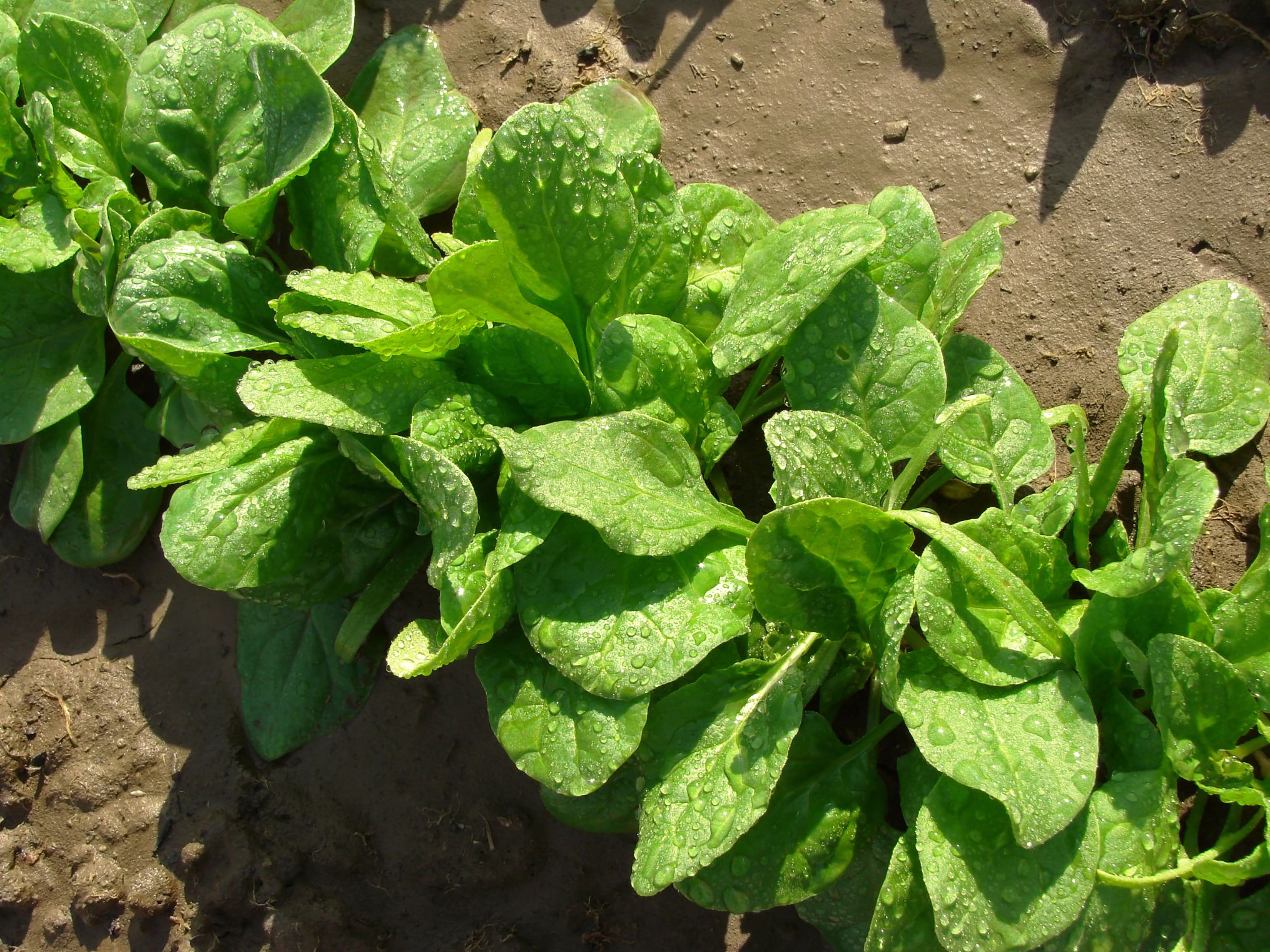More productive farming means more pressure on existing water resources in any country, but this is especially true in India today. Soon to surpass China as the world’s most populous country and fastest growing economy, India’s industries and cities are rapidly modernizing, taxing water supplies. But the nation needs more food. To cope, authorities are encouraging farms to turn to urban sludge and other wastewaters in a bid to conserve groundwater. The wastewater grows delicious food, but scientists fear potential health consequences. Researchers are now delving into the risks of heavy metal contaminants accumulating in the tissues of leafy green vegetables that are key ingredients in some Indian curries. Spinach is as good as any place to start.
In Haridwar, Uttarakhand, a team of scientists from Gurukula Kangri University has turned its attention to spinach grown with sewage sludge and industrial wastewater. The research aims are twofold—first, to determine if the wastewater truly aids in crop development, and second, if these same wastewater-grown crops lead to unacceptably high volumes of cadmium, chromium, copper, and manganese in crops. The stakes are high. India’s food demand is rising while freshwater resources are being stretched ever thinner. But the heavy metals listed above can lead to painful diseases, including the infamous “itai itai” disease discovered over a hundred years ago in Japan, a bone-wasting ailment that was eventually linked to heavy metal contamination from mining waste entering streams and accumulating in fish. Scientists know that irrigating with urban and industrial wastewater results in higher accumulations of heavy metals in soils. The question is whether or not this contamination is entering plants and likely to make people sick, negating any health benefits that may be derived from the nutrients these plants intake from these same wastewater resources.
Agro-ecology scientists Vinod Kumar, Roushan Thakur, and Pankaj Kumar made public initial conclusions from their investigations in the journal Environmental Monitoring Assessment. They find that integrated industrial wastewater (IIW) irrigation results in “a significant increase…in the growth and productivity of spinach plants in IIW irrigated soils as compared to normal borewell water irrigation.” This may depend on the volume of wastewater applied. In an earlier 2016 study V. Kumar and two different colleagues determined that spinach responded well to “sewage sludge-amended soils” only up to concentrations of 50%. Anything above that ratio actually hindered seed germination. But the data gathered from both studies agrees with farmers’ perceptions that wastewater as fertilizer does indeed grow more spinach, leaving little doubt. Wastewater irrigation also enriched plants with more nutrients, including potassium, calcium, sodium, magnesium, and iron, all beneficial to human health. But as nutrient volumes increased, so did volumes of heavy metal contamination. “Along with the enhancement of crop yields/productivity, many hazardous [heavy metals] are accumulated into edible vegetables,” the scientists confirmed. “Consuming such contaminated vegetables is not good for human health.”
But wastewater irrigation in India isn’t going away anytime soon. There may still be time to resolve this dilemma.
Investigators have so far found that heavy metals are accumulating in spinach below levels deemed immediately risky to humans, according to standards set by India’s regulators and the UN Food and Agriculture Organization. The government sees wastewater recycling and reuse in agriculture as an imperative given the growing demands for freshwater. The Haridwar researchers seem to agree, and they’re now busy developing models that can help them predict heavy metal accumulation in spinach from wastewater irrigation practices over time. Assistant Professor Vinod Kumar tells Grow Further that the next step is to find a way for regulators and farmers to have their cake and eat it too. As they continue studying what wastewater irrigation does to spinach, they next want to figure out how to remove the harmful heavy metals while keeping the beneficial nutrients in place. “Currently, our goals are to utilize waste materials to cultivate agro-foods,” Kumar said. “Regarding the mitigation of the heavy metal uptake by spinach, we are also interested in working on this.”
Heavy metal contamination of crops is also a major problem in China and other countries, and finding ways for the spinach used in Indian curries to take up less of it is the type of innovative, overlooked approach to food security that Grow Further seeks to fund.
–Grow Further




